Watermelon is a delicious and refreshing fruit that is enjoyed by many during the summer months. However, when it comes to the seeds, opinions are divided. Some people spit them out, while others choose to eat them. So, can you eat watermelon seeds?
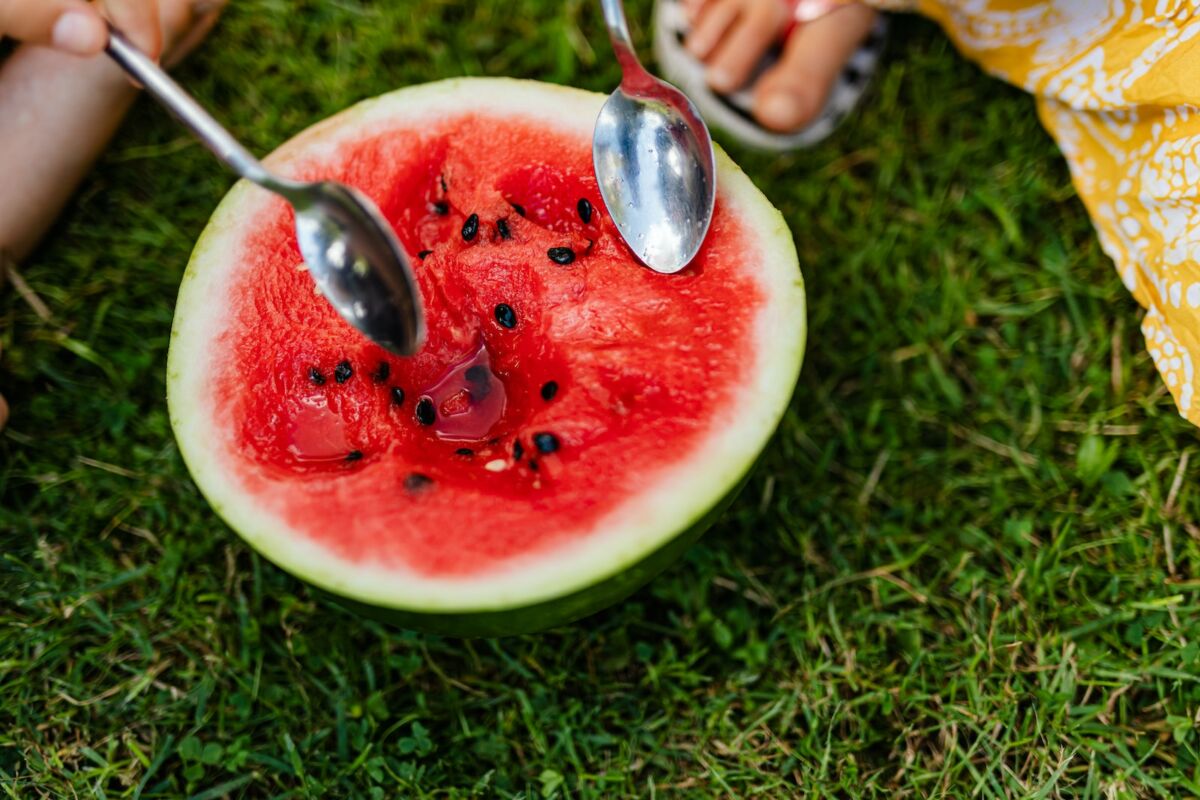
The answer is yes, you can eat watermelon seeds. In fact, they are safe to eat and can even be beneficial for your health. Watermelon seeds are a good source of protein, healthy fats, and minerals such as magnesium, iron, and zinc. They also contain antioxidants that can help protect your cells from damage caused by free radicals. However, it’s important to note that you should not eat the seeds in large quantities as they can cause digestive issues.
Can You Eat Watermelon Seeds?
Watermelon is a refreshing fruit that is perfect for hot summer days. However, when you cut into a fresh watermelon, you’ll likely notice two kinds of seeds: black and white. This raises the question: can you eat watermelon seeds?
The Short Answer
Yes, it’s safe to eat watermelon seeds. In fact, just about every component of watermelon is safe to eat. This goes for both the white and black seeds found in most watermelons.
The Long Answer
Watermelon seeds are packed with nutrients such as protein, essential fatty acids, and minerals like magnesium, iron, and zinc. However, it’s important to note that the seeds have a hard outer layer that can be difficult to digest.
If you want to eat watermelon seeds, you can roast or sprout them to make them easier to digest. Roasting the seeds can add a delicious crunch to your snack. To roast watermelon seeds, wash them and then spread them out on a baking sheet. Roast them in the oven at 325°F for about 15 minutes or until they are golden brown.
Another option is to sprout the seeds. Sprouting the seeds can help to break down the hard outer layer, making them easier to digest. To sprout watermelon seeds, rinse them and place them in a jar with some water. Let them sit for a few days, rinsing them daily until they sprout.
If you don’t want to go through the hassle of roasting or sprouting the seeds, you can also buy a seedless watermelon. Seedless watermelon is a hybrid variety that produces very few, if any, seeds.
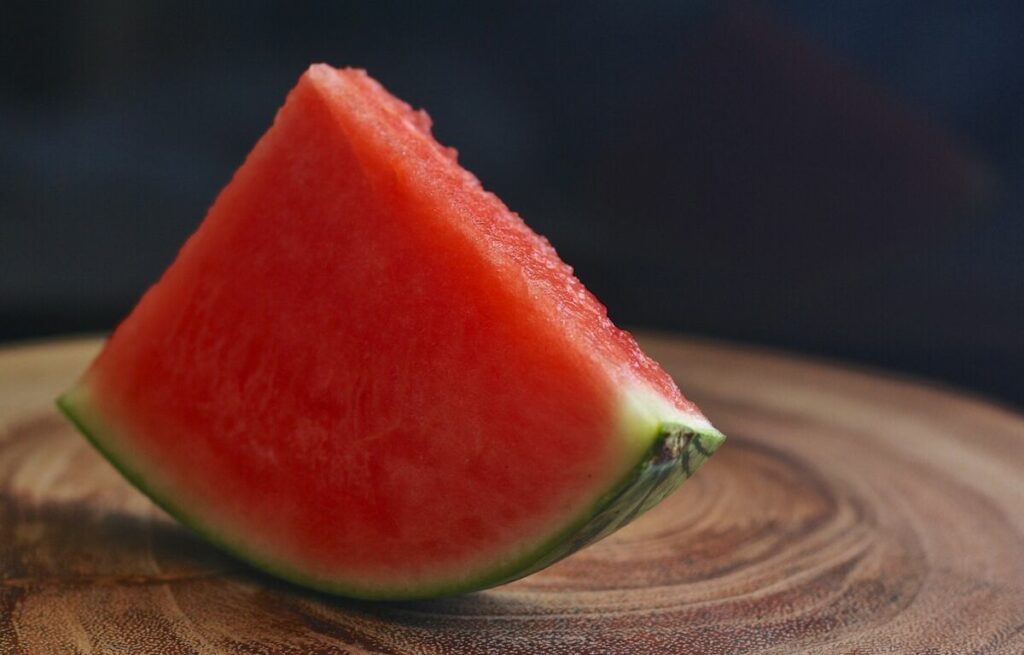
In conclusion, watermelon seeds are safe to eat and are packed with nutrients. However, they can be difficult to digest due to their hard outer layer. If you want to eat watermelon seeds, you can roast or sprout them to make them easier to digest. Alternatively, you can opt for seedless watermelon.
Nutritional Value of Watermelon Seeds
Watermelon seeds may seem small and insignificant, but they actually hold some nutritional value. In this section, we will discuss the macronutrients and micronutrients found in watermelon seeds.
Macronutrients
Watermelon seeds are a good source of protein, healthy fats, and fiber. A one-eighth-cup serving of watermelon seeds contains approximately 4 grams of protein, 5 grams of healthy fats, and 2 grams of fiber. They are also relatively low in calories, with only around 23 calories per handful.
Micronutrients
In addition to macronutrients, watermelon seeds contain various micronutrients essential to our health. Here are some of the micronutrients found in watermelon seeds:
- Magnesium: Watermelon seeds are a good source of magnesium, which is important for bone health, energy production, and regulating blood pressure.
- Iron: Watermelon seeds contain iron, which is important for transporting oxygen throughout the body.
- Potassium: Watermelon seeds are a good source of potassium, which is important for maintaining healthy blood pressure and heart function.
- Folate: Watermelon seeds contain folate, which is important for fetal development and helps to prevent birth defects.
- Omega-3s: Watermelon seeds contain omega-3 fatty acids, which are important for brain health and reducing inflammation.
- Manganese: Watermelon seeds are a good source of manganese, which is important for bone health and wound healing.
It’s important to note that while watermelon seeds do contain salt and sugar, they are present in very small amounts and are not a cause for concern.
In summary, watermelon seeds may not be a significant source of nutrition, but they do contain a variety of essential nutrients that can contribute to a healthy diet.
Health Benefits of Eating Watermelon Seeds
Watermelon seeds are often overlooked, but they are nutritious and can offer various health benefits. Here are some of the ways that eating watermelon seeds can support your health:
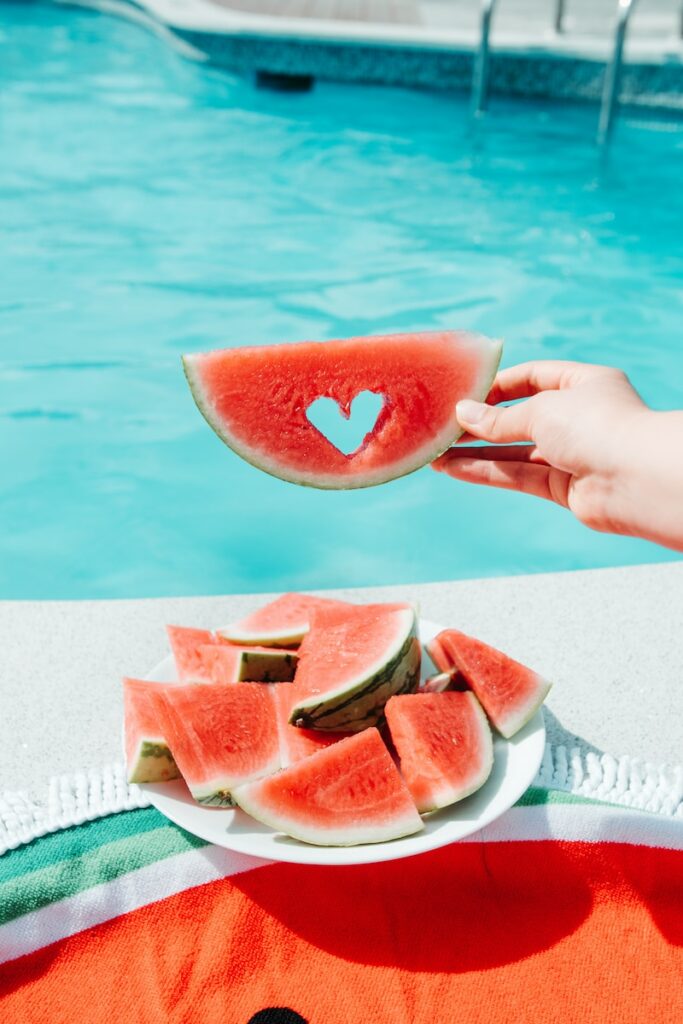
Digestive Health
Watermelon seeds are a good source of insoluble fiber, which can help promote regular bowel movements and prevent constipation. They can also help reduce bloating by moving food through the digestive tract more efficiently.
Heart Health
Watermelon seeds contain essential fatty acids, including polyunsaturated fatty acids, which can help lower cholesterol levels and reduce the risk of heart disease. They also contain magnesium, which is important for maintaining a healthy heart rhythm and blood pressure.
Immune System
Watermelon seeds are rich in antioxidants, which can help protect your cells from damage caused by free radicals. They also contain vitamin C, which is important for supporting a healthy immune system.
Skin Health
Watermelon seeds contain vitamin E, which is important for maintaining healthy skin. Vitamin E is an antioxidant that can help protect your skin from damage caused by UV radiation and other environmental factors.
In addition to these specific benefits, watermelon seeds can also help with hydration and electrolyte balance. They are a good source of potassium, which is important for maintaining proper fluid balance in the body.
Overall, including watermelon seeds in your diet can be a healthy and nutritious choice. Just be sure to roast them before eating to make them more digestible and enjoyable.
How to Eat Watermelon Seeds
Watermelon seeds are often overlooked as a snack, but they can be a great source of healthy fats, zinc, and fatty acids. Here are some ways to prepare them for a tasty snack.
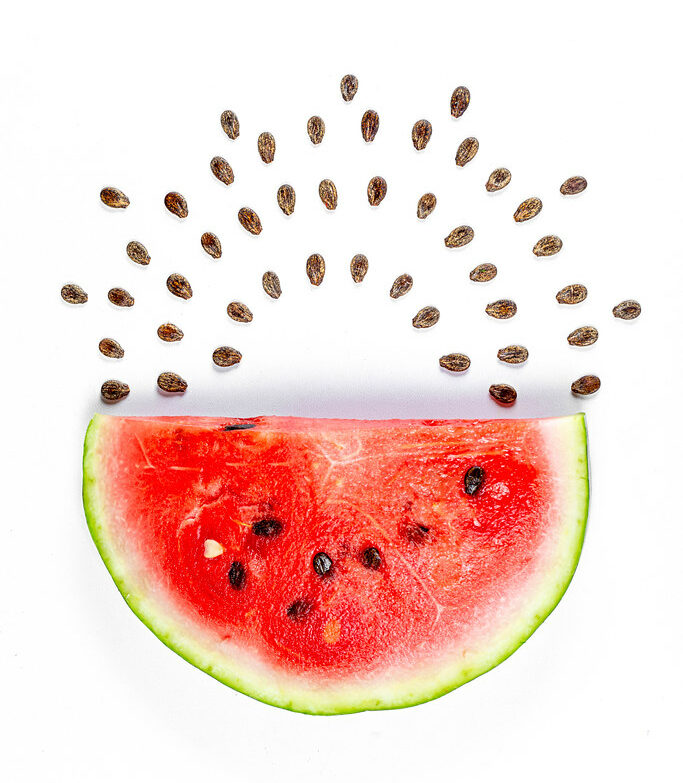
When preparing watermelon seeds, removing the black shell before eating is important. You can do this by cracking the shell with your teeth or using a nutcracker. If you’re looking for a quick and easy snack, roasted watermelon seeds are a great option.
Roasting
Roasting watermelon seeds is a popular way to enjoy them. Preheat your oven to 325°F and spread the raw seeds on a baking sheet. Drizzle with olive oil and sprinkle with seasonings such as cinnamon or salt. Roast for 15-20 minutes until crispy and golden brown. Let them cool before snacking.
Sprouting
Another way to eat watermelon seeds is to let them sprout. Rinse the seeds and place them in a colander. Cover with a towel and let them sit for a day or two until sprouts appear. Then, roast them in the oven or dehydrator for a tasty snack.
Drying
Dried watermelon seeds can be a crunchy addition to salads, smoothies, or oatmeal. Spread the seeds on a baking sheet and let them dry in the sun or oven at a low temperature. You can also use a dehydrator. Once dry, store them in an airtight container for up to a month.
According to registered dietitians Keri Gans, Jessica Cording, and Gina Keatley, watermelon seeds can be a source of healthy fats and protein. The American Heart Association also recommends including seeds in your diet for their nutritional benefits.
You can also use watermelon seeds to make seed butter, similar to almond or peanut butter. Simply blend roasted or sprouted watermelon seeds in a food processor with a little avocado oil until smooth. Use it topically or as a tasty snack.
Overall, watermelon seeds can be a delicious and nutritious addition to your diet. Try roasting, sprouting, or drying them for a tasty snack that can help regulate blood sugar levels and provide healthy fats.
Conclusion
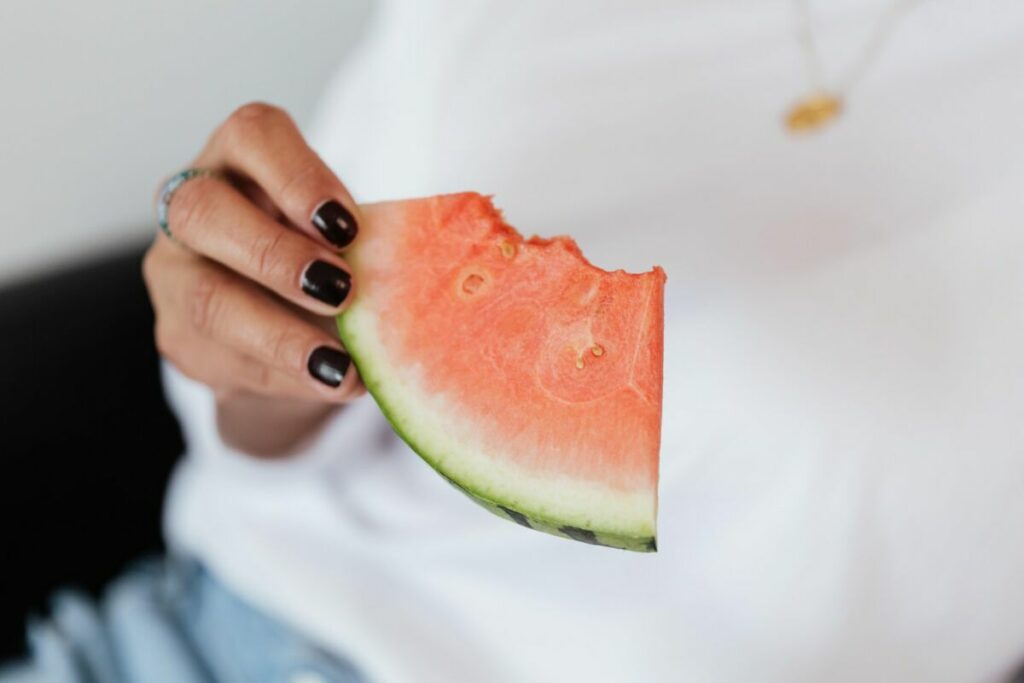
In conclusion, watermelon seeds are safe to eat and can actually provide some health benefits. They are a good source of protein, healthy fats, and minerals like magnesium and potassium. Eating watermelon seeds can also help reduce food waste, as many people discard them without realizing their potential nutritional value.
While some people may prefer to remove the seeds from their watermelons, others may enjoy snacking on them or using them in recipes. Roasting watermelon seeds can enhance their flavor and make them a tasty and nutritious snack. Additionally, incorporating ground watermelon seeds into smoothies or baked goods can add a boost of protein and nutrients.
It’s important to note that while watermelon seeds are safe to eat, they should be consumed in moderation. Eating too many seeds can lead to digestive discomfort, as they contain fiber and can be difficult to digest in large quantities. It’s also important to be cautious when consuming watermelon seeds if you have a nut allergy, as they can trigger a similar allergic reaction.
Overall, watermelon seeds are a nutritious and versatile food that can be enjoyed in various ways. By incorporating them into your diet, you can reduce food waste and reap the health benefits they have to offer.